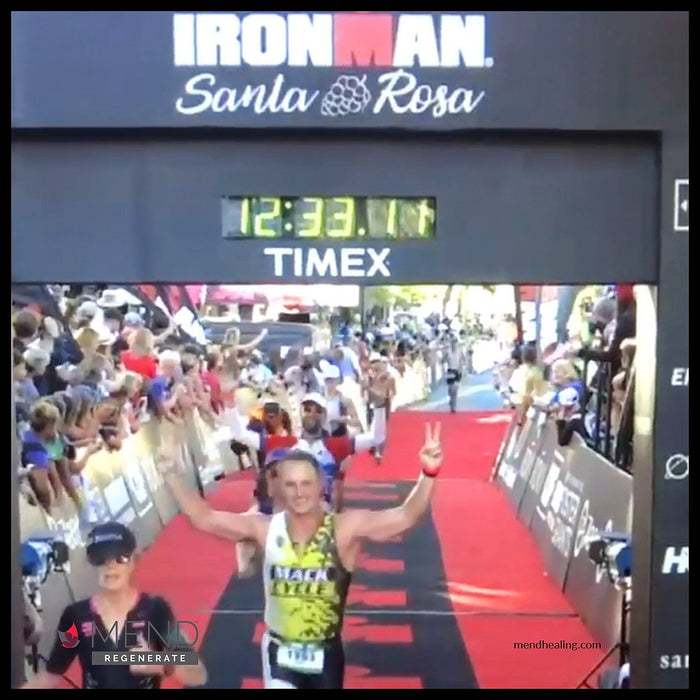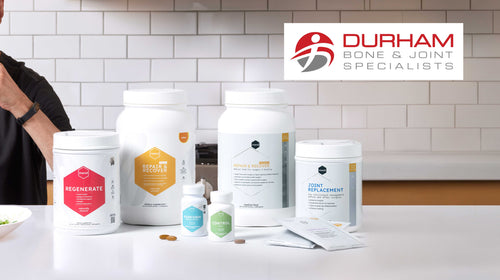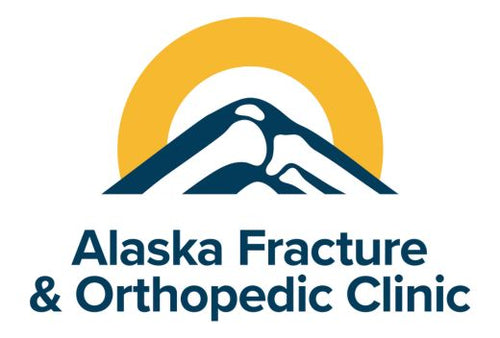Award winning MEND Regenerate helped one athlete get back into his training routine, two days after finishing his first Ironman
Cody Patrick has never been one to shy away from a physical challenge.
The longtime athlete just completed his first full Ironman triathlon, and plans a second one in two months. (And why not, really? He’s already invested countless hours preparing his body for the endurance event.)
After his second Ironman, he is considering a trip to ascend Mount Kilimanjaro, the highest mountain in Africa, which will be his second big climb. He has already taken on the majestic Matterhorn, a towering beauty in the Alps that straddles Switzerland and Italy, so he’s already seen the world from a different perspective.
“I like to do epic things,” he said. “Sometimes, the more epic the better.”
Patrick has always been an athlete, and that has given him the discipline required to take on an Ironman triathlon, as well as the training required to prep for it. An Ironman is a grueling event that lives up to its name. It kicks off with a 2.4-mile swim followed by a 112-mile bike ride, and ends with a marathon run, 26.2 miles.
“Fortunately, I’m a really strong runner,” said Patrick, who finished the extreme event in 12 hours, 18 minutes.
An athletic background laid the foundation for the endurance event.
“I’ve played sports my whole life,” said Patrick, who was on as many teams as possible in high school and earned a degree in exercise physiology in college, which gave him the foundation he needed to land coveted gigs teaching fitness classes on cruise ships. The time he spent on the ocean led the Wyoming native to Miami Beach, where he opened S.H.I.F.T. (Sunset Harbor Innovative Fitness Training) Fitness, one of Miami’s elite fitness studios. “That’s always been my passion.”
MEND saved precious time and money
Despite a pretty rigorous workout routine, Patrick was ripe for a new challenge, and an Ironman seemed perfectly suited for his competitive spirit. About halfway through the seven months he spent prepping for the Ironman, he discovered MEND Regenerate, a supplement that not only helped his muscles recover faster after a workout, it also put replaced many of the supplements he was already taking, which allowed him to ditch many of his bottles for a single meal replacement, a perfect move for his on-the-go life.
“It’s much more efficient and it tastes great,” Patrick said. “What’s great about it is I was taking all these supplements, and I didn’t feel like I lost anything [by trading them for MEND].”
MEND, which is used by many top athletes, contains a wealth of nutrients including protein and branch chain amino acids to help build and repair muscle, green tea extract for slow, sustained energy, prebiotics and enzymes to help the body better absorb essential protein and a nutrient-dense blend of vitamins, minerals and antioxidants to help promote overall health, energy and vitality.
MEND was an ideal addition to the synergistic union of nutrition and training that gives Patrick an edge even when he’s not training for endurance events, since even his regular fitness routine is supercharged and supersized.
“My normal workout schedule is much more intense than other people’s,” said the triathlete, who usually focuses on weightlifting and yoga to stay strong and flexible. When he chose to do an Ironman, he became uber-focused on the training and nutrition he needed to complete the hardcore event.
“It takes up a lot of your head space,” he said. “You need to be really focused to organize your life to fit everything in. I tune out the rest of my life.”
Ironman training takes workouts to the extreme
So, what does an average week look like for someone training for an Ironman?
Patrick, already in top form, became a beast.
His routine consisted of 12 to 20 hours of exercise a week, which included plenty of prep the night before making sure his workout gear was ready and his bike tires were pumped up, on top of the 50 or so hours he already spends running his fitness studio.
Patrick kicked his workout week off on Mondays with a one-hour swim followed by an hour-long run. On Tuesdays, he spent two hours on his bike, followed by an hour-long run. Wednesdays, he mixed swimming and running, with an hour in the pool followed by an hour-long run, while on Thursdays he ran 13 to 18 miles, a good base to train for the marathon-length run. Friday was what he called “an easy rest day,” and including an hour-long swim to ease overworked muscles.
On weekends, when he had the most free time, training was pretty hardcore. On Saturdays, he spent five hours of cycling followed by an hour-long run. On Sundays, it was much of the same, with a three-hour biking session followed by an hour-long run.
His friends and family were supportive, though and respected his dedication, so much so that Patrick’s girlfriend went to bed early on Friday nights, knowing that Patrick had to get up early the next day to fit in his longest workout of the week.
Such determined, disciplined training is vital in order to make it through an endurance event like the Ironman, for which Patrick is especially suited.
“I have a really calm and relaxed approach,” he said. “I’m not one of those people who has to get fired up. I’ve always had that mentality, which is really good for long distance sports.”
MEND was a fortuitous find for Patrick, who already supplemented, by had added some extras found in the formula during his training to help his body perform at its best.
Not only did MEND give him a way to take many of his supplements in one delicious shake, it also helped him recover much faster following the triathlon.
“My recovery was much quicker. Two days after, I was running again,” he said, adding that a friend who competed with him (and did not take MEND) was still sore a week after completing the event.
Patrick, who now recommends MEND to his clients, is not the only triathlete to appreciate the nutritional benefits of the product.
“Athletes often use traditional sports recovery products which supply needed carbohydrates and electrolytes, but fail to add ingredients that aid tissue repair, and often neglect to ensure products are free of questionable ingredients or potential harmful substances. The essential amino acids and accountability are often the missing pieces,” said Lauren Antonucci, a registered dietician and triathlete who has completed an Ironwoman triathlon.
To learn more about Cody Patrick, check out his studio’s website at shift.fit.



